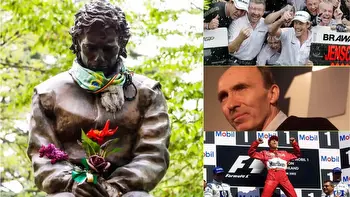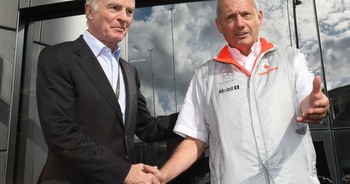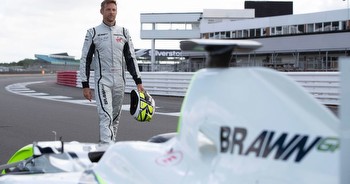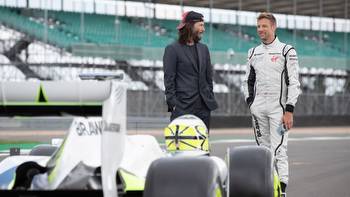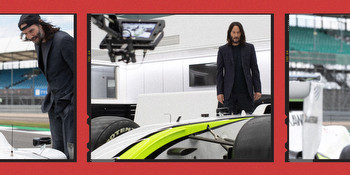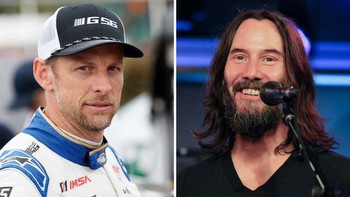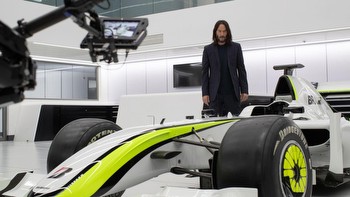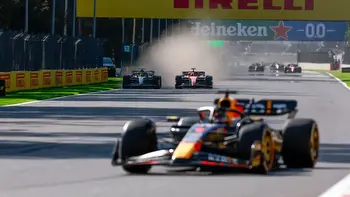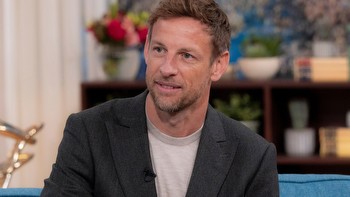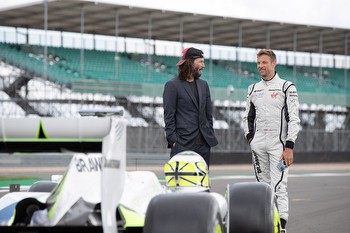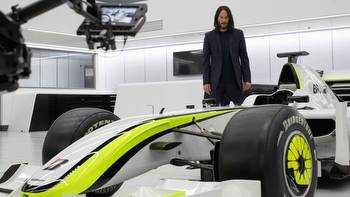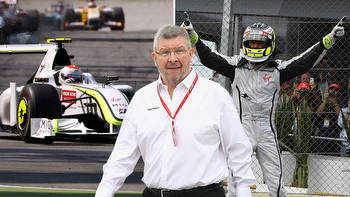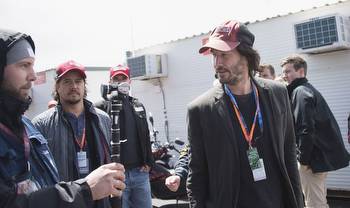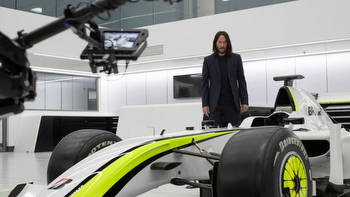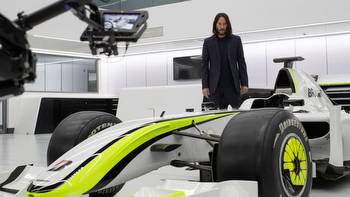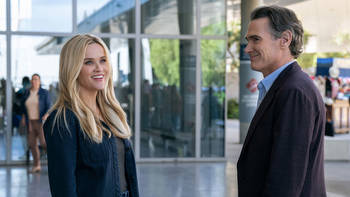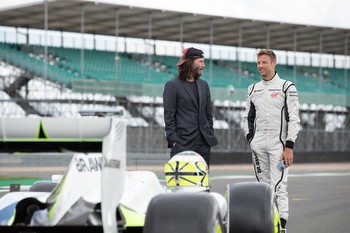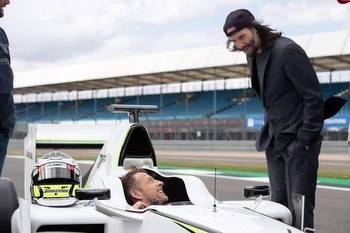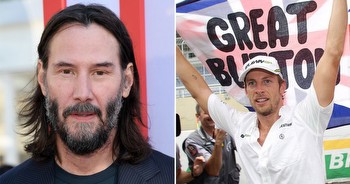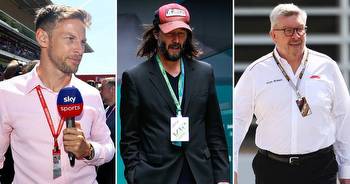Has Disney done justice to Button and Brawn's F1 fairytale?
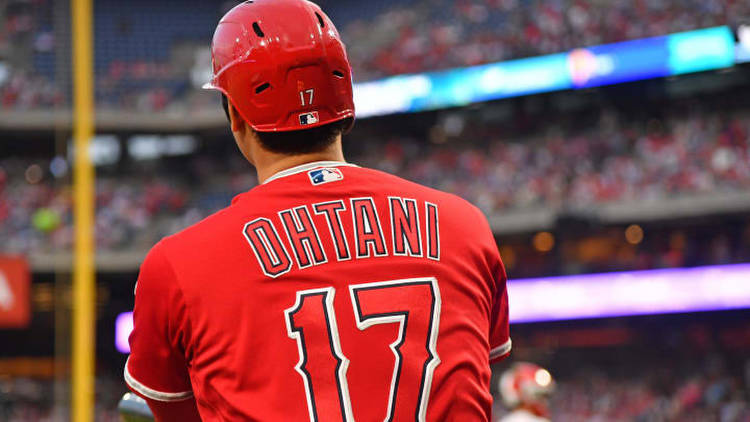
How impressed with a documentary should you really be if the subject matter does so much of the work?
It's always easy to get on the case of Formula 1's flagship product Drive to Survive - I certainly have - for its often muddled, often exaggerated storylines, but the producers of the Netflix hit are operating a very specific set of constraints.
They clearly find themselves doing a lot of storyboarding on the fly, they're at the whims of the narrative of the specific weekends in which they chose to follow that team or the other - and, look, the season might just be bad as a whole. But however bad, you still must deliver a product.
There is no such problem for Brawn: The Impossible Formula 1 Story, the Keanu Reeves-hosted Disney+ exclusive premiering a week from now on Wednesday, November 15.
The 2009 F1 season is renowned as a fairytale already. It combines the back-against-the-wall, leap-of-faith narrative of something like Moneyball, one of the best sports movies, with the dastardly machinations and scheming of something like... well, Formula 1. It's a ready-made underdog tale for the ages.
Ultimately, in this regard, that initial question should only really matter for things like awards consideration - for the regular viewer, an entertaining and informative package will no doubt be enough regardless of how much of an open goal the 2009 story is.
And you can still absolutely miss open goals (as a Chelsea fan I am only too familiar with the sight). Brawn: The Impossible Formula 1 Story does not. It taps in with aplomb. It is not a revelation, but it is a worthy and well-executed entry into the F1 TV canon all the same.
Brawn: The Impossible Formula 1 Story spans four episodes of around one hour each, usually coming in just shy of the 60-minute mark. It takes the viewer from the starting point you'd expect - Honda's withdrawal from F1 that looked like the end of the Brackley-based team before the Ross Brawn-led rescue - and ends up where you'd expect too, with the championship celebrations in Interlagos.
The bizarre tale of Button's two aborted Williams returnsChances are pretty good that if you're on this website, you're quite familiar with the tale of F1's out-of-nowhere 2009 champions. Just in case, though: amid an underwhelming stint as Honda's factory F1 operation, the Northamptonshire outfit that traces its lineage back to iconic former team Tyrrell received a major shock in the form of a sudden Honda exit, despite a car having already been designed for 2009.
Team boss Ross Brawn and CEO Nick Fry preserved the team's place on the grid - at least initially - through a management buyout, then discovered that the car Honda had left behind actually came out bewilderingly fast, thanks in no small part to a technical regulations loophole - the famous 'double diffuser' - being well-exploited.
Aided by F1's traditional powerhouses stumbling out of the gates, the newly-renamed Brawn GP made hay while the sun shone despite what by all accounts was a shoestring budget - then held on during a nail-biter second half of the season, its early advantage having been largely erased.
That is basically the story you get in Brawn: The Impossible Formula 1 Story, although it is weighted slightly differently. The narrative is actually spaced out a lot more even over the course of the season than one might expect - in theory, almost a full episode could probably be dedicated to the team's pre-season realisation of just what a weapon its car is, but that doesn't really happen.
And that's not necessarily a criticism. In fact, it serves the doc well to maintain the fairly brisk pace that it does, because it helps strike a balance between catering to those who are coming in blind and those who are already well-familiar with the Brawn tale.
There have, after all, been no shortage of Brawn GP retrospectives. And if you've read or seen one or two in your time, there'll be a fair few instances of 'oh, I know that story!' through the doc's runtime. But it is, in a way, specialist knowledge and that familiar ground has to be covered anyway if there's an understanding by default that a Brawn GP documentary is worthwhile - which, given F1's influx of new fans, is an easy premise to accept.
At the same time, there's definitely material that feels very new (shout-out to 'Cambergate') and an overall welcome wide scope of coverage, with the showrunners clearly committed to telling a fairly comprehensive story of the 2009 season through the prism of Brawn GP rather than fully fixating on the British team.
Though it's obviously inter-connected, for the purposes of forming an impression the four-episode run of Brawn: The Impossible Formula 1 Story can largely be split into two bits - off-track politicking/team survival sections and race weekend/track action edits.
The former is generally the stronger of the two. What risks being occasionally pretty dry material - although the interviews are strong enough to hold your attention - is propped up by solid narrative editing and some cool tricks, mostly ever-present instances of staged 'semi-historical' recreation featuring Brawn and Fry that often transition quite smoothly into the present day.
The portrayal of F1's favoured topic of discussion, the always-in-the-news 'prize money cake', is a particularly inventive bit of directorial swagger, and the story around it - and the wider political games Brawn GP repeatedly found itself in the thick of - is well-told, though not having been an F1 writer in 2009 I'd struggle to vouch for the balance of the portrayal.
What may disappoint some is that the technical aspects are relatively brief. The double diffuser is explained, yes, but without a deep dive into its exact mechanics and the minutia of the legal arguments surrounding it.
It's perhaps understandable - the scope of the work was never going to allow for a 20-minute big-budget animated lecture on technical complexities. Even within a surface-level overview, though, an eyebrow-raiser sneaks in - the effect of added downforce is described as "more speed in the corners meant they would be faster on the straights", which is accurate on some level but is a jarring thing to hear given the conventional relationship between downforce and straightline speed.
Still, the overall focus on the politics and F1 in-fighting juxtaposed with Brawn GP's own battle for survival and future-proofing is engaging, and is the more memorable part of the package compared to the actual racing.
The race edits and narratives are fairly by-the-numbers and though it's nowhere near the level of 'creative' editing that Drive to Survive is often criticised for, there were a couple of rough-around-the-edges moments in the cut The Race previewed.
The instance that sticks out in particular is the combination of the audio track conveying that "Button is only one and a half seconds clear of Vettel" and visuals showing Button as being obviously much further up the road.
Among other moments that probably can be fixed in the editing are a couple of unnatural-sounding audio cuts and dubious bits of assumed knowledge for a product that clearly aims to have beginner appeal - like the sudden mention of Max Mosley as a name without any context, before it is later clarified who Max Mosley is.
Mosley has an unsurprisingly major role in the documentary but, having passed away in 2021, is mostly present through footage from an old BBC interview with ex-F1 presenter Jake Humphrey.
But the other key figures (not just from Brawn GP, although it is very important that the series made use of quite a few staffers and didn't limit itself to Brawn and Fry) are all here for interviews - save maybe for one driver absence that feels pretty glaring when you look at the 2009 standings.
Oh well, probably can't get 'em all even when you're Disney. The strong interview roster, headlined by particularly entertaining turns by Christian Horner (unsurprisingly, although your mileage may vary depending on how much you enjoy him on DtS), Luca di Montezemolo and, yes, Bernie Ecclestone, also reveals another surprising strength - Reeves.
A long-time bankable Hollywood star and the anchor of multi-million franchises The Matrix and John Wick, Reeves hadn't always been the most heralded of the industry's leading men. His particular mannerisms in his calling card roles are easy to poke fun at, even if it's affectionate, and it probably didn't help that one of his early triple-A roles was famously in Bram Stoker's Dracula, in which every scene he and, specifically, his bewildering accent are present in can pretty much be accompanied with a laugh track (sorry, Keanu).
But he has been unquestionably re-appraised in the past decade or so, in large part because people just plainly really like him - his particular presence on-screen, his warm and gentle personality off of it.
What makes Brawn: The Impossible Formula 1 Story tick, though, is not so much either of those things as Reeves' obvious enthusiasm and engaged interviewing style.
Reeves is on record as an F1 fan and while you do catch yourself almost interrogating the events on screen sometimes, with a 'but how much do you actually know about this, Mr. Hollywood Man?' that ultimately doesn't really matter.
As an interviewer, Reeves seems entirely in his element. One scene where he's egging on Di Montezemolo is a real highlight, but it's part of a wider pattern of Reeves just really being up for it.
There's just the one instance across the four episodes where somebody from the production team chimes in with a timely question off-screen - and rather than dash the immersion, it weirdly helps it, contributing to the feeling that this really is a Keanu Reeves-navigated journey into a fascinating F1 season rather than a bunch of rigid, scripted chats hitting pre-agreed talking points.
In the end, Reeves ends up the connecting tissue that anchors the material and offers something of a unique selling point to fall back on when the show finds itself hitting overly-familiar sports doc notes.
Reeves aside, the end result is about what you'd expect - which is also a good thing. Whether it is worth the price of admission of some form of Disney subscription is a very circumstantial question - as far as Disney+ output goes, it isn't exactly a game-changing masterpiece like Andor - but if you're already pondering one, its presence can well be a valuable 'swing vote'. And it's certainly worth the time commitment.

